For the vast majority of people, working from home has been a boon. No commutes, no packed office lunch, more free time. But some folks out there seem to assume that it means these kinds of workers are always just free.
A freelance graphic designer shared her encounter with an entitled woman who believed that just because someone works from home, they must be free to drop everything for something she needed right now. We reached out to the woman who shared the story via private message and will update the article when she gets back to us.
Even freelancers tend to have certain workloads every day

Image credits: Getty Images / Unsplash (not the actual photo)
So one graphic designer was surprised when a woman really believed she was free in the middle of a workday


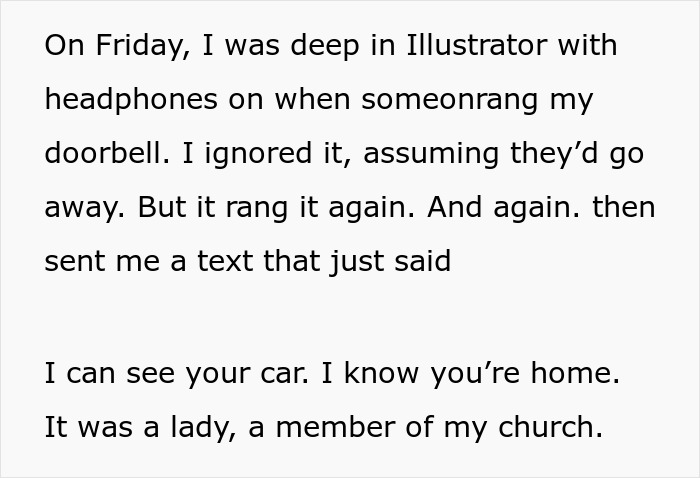

Image credits: Getty Images / Unsplash (not the actual photo)
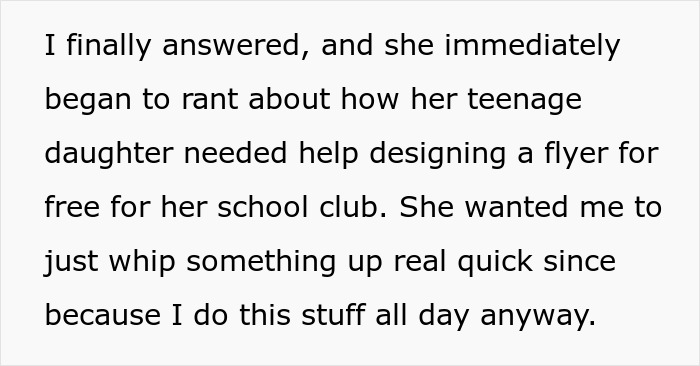
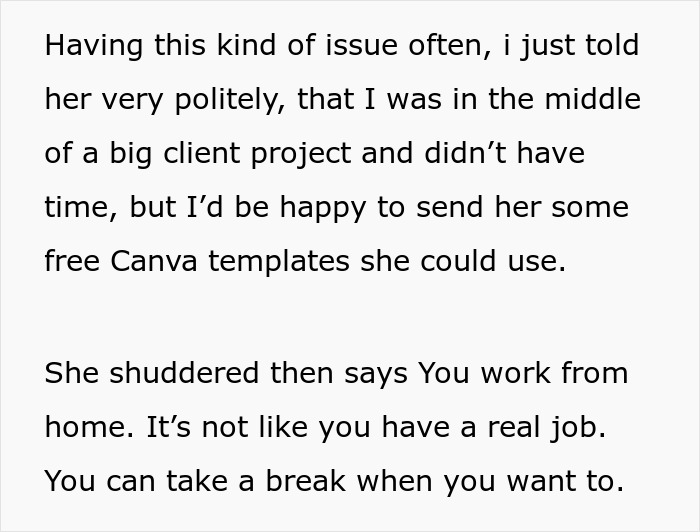


Image credits: Kaboompics.com / Pexels (not the actual photo)
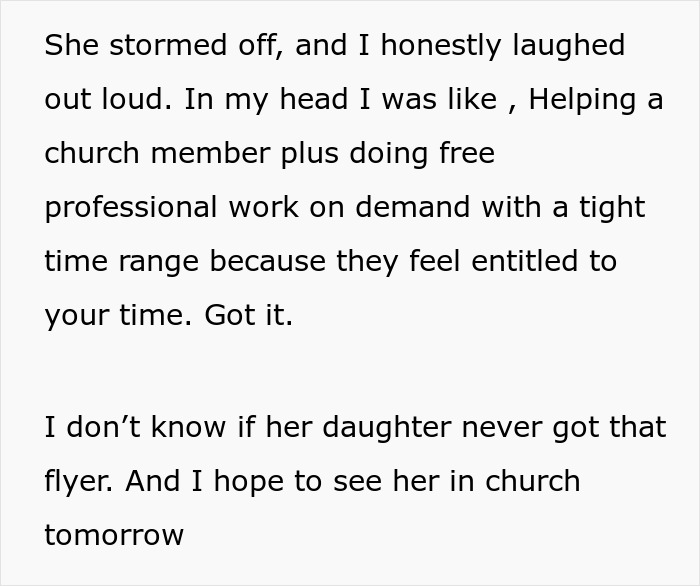
Image credits: MaraRoses_
Some people think freelancing is a life of leisure
Many people assume that if you’re a freelancer working from home, your day must be wide open, with free lunches, midday naps, and spontaneous coffee dates galore. After all, there’s no 8-to-5 cubicle, no morning commute, no boss lurking over your shoulder. But this misconception couldn’t be further from the truth. There are many reasons why people think home-based freelancers enjoy all the free time in the world, from the invisibility of remote work to cultural misunderstandings of flexibility, and it most often leads to awkward social expectations and strained relationships.
When you’re on a regular schedule, clocking in at an office, spending hours in a visible space, people see you at a desk from nine to five. With freelancing, the entire process happens behind closed doors: researching, writing, coding, designing, consulting, or managing clients. There’s no visible timecard, no office chatter that signals “I’m busy,” so friends and family only notice the gaps between tasks. That empty kitchen table or quiet home office can look, from the outside, like ample free time, even if you’re in the middle of back-to-back video calls, frantic last-minute edits, or an all-day creative brain dump.
People hear “I work from home” and mentally translate flexibility into “open schedule.” Yes, freelancers often set their own hours, but that flexibility doesn’t equate to a half-vacation. Instead of a boss telling you when you start and stop, you’re answerable to clients, deadlines, and project parameters. A lunch hour break to fit in a gym session can mean a longer work stint that night; a postponed editing session to fit in a plumber appointment might require an early-morning rewrite. Outsiders see freelancers taking lunch at 1 PM and think, “So much leisure time!

Image credits: A. C. / Unsplash (not the actual photo)
Work from home doesn’t mean less work
Writing a compelling marketing copy, debugging code, strategizing a social-media campaign, all require deep concentration, creative energy, and mental stamina. But because they do not require visible effort, bystanders might assume they are quick, easy tasks that can be interrupted at a moment’s notice. “You must love working from home every day!” they coo, oblivious to the hours of research, brainstorming, and editing that go into a single word published or design file delivered.
In many cultures, productivity is confused with visible busyness. If you show up to a lunch meeting relaxed, no blazer, no briefcase, people assume you have time to spare. A freelancer may feel obligated to explain or prove that they’re actually working: “No, I really do have back-to-back meetings!” or “I promise I have a deadline tonight.” Yet these explanations typically fall on deaf ears; friends need to socialize, family requires help with errands, and acquaintances see your flexible job as an open invitation to utilize you as a personal assistant or weekend playmate. At the same time, people love to complain about annoying coworkers, bosses, horrible office coffee and more, without reflecting on how avoidable it all is.
That misunderstanding can generate resentment. Freelancers who get constantly asked for social outings or home visits during “work hours” either overcommit socially, then crunch through deadlines later, or isolate themselves to stay productive. Both have a price. Feeling misunderstood, they may omit explanations of their schedules entirely, which only feeds into the myth: without context, others will presume they’re available whenever. The remedy for this misperception is clear, constant communication. Freelancers can create visible boundaries, closing the door to the home office, using status indicators on messaging apps, or posting a shared online calendar with “busy” time blocks marked
Readers shook their heads at the woman’s entitlement
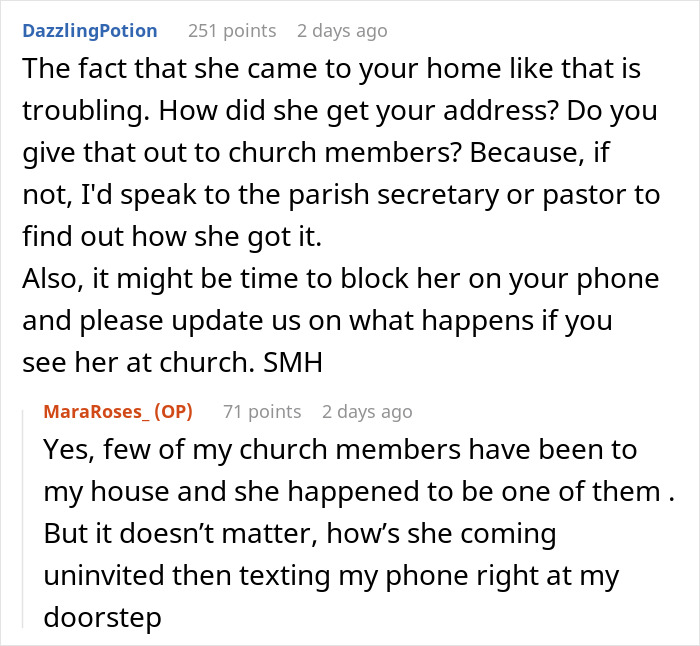

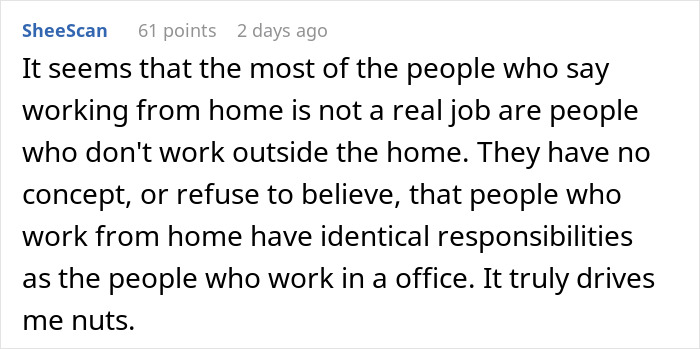


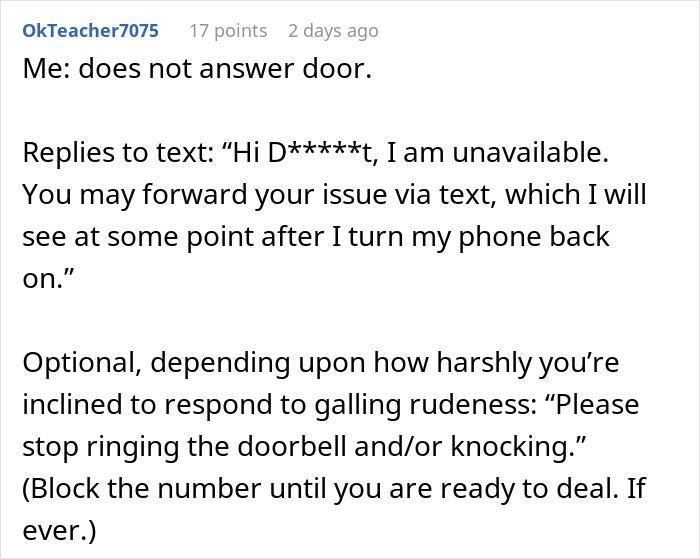
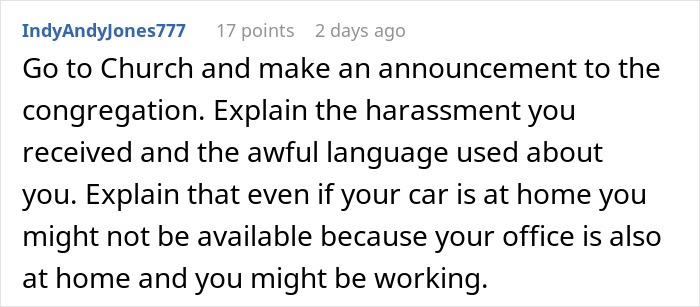
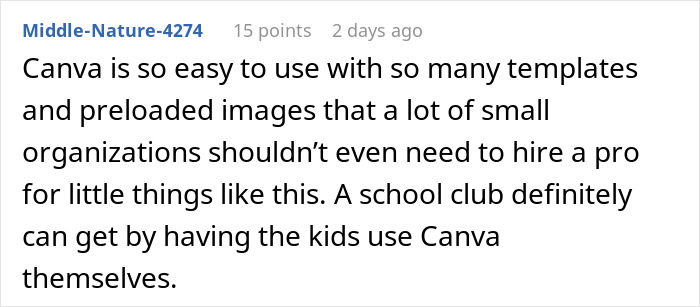
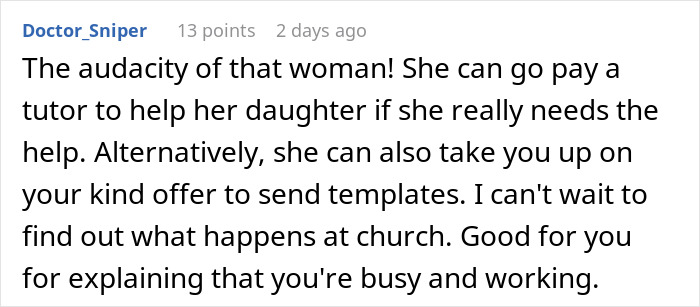


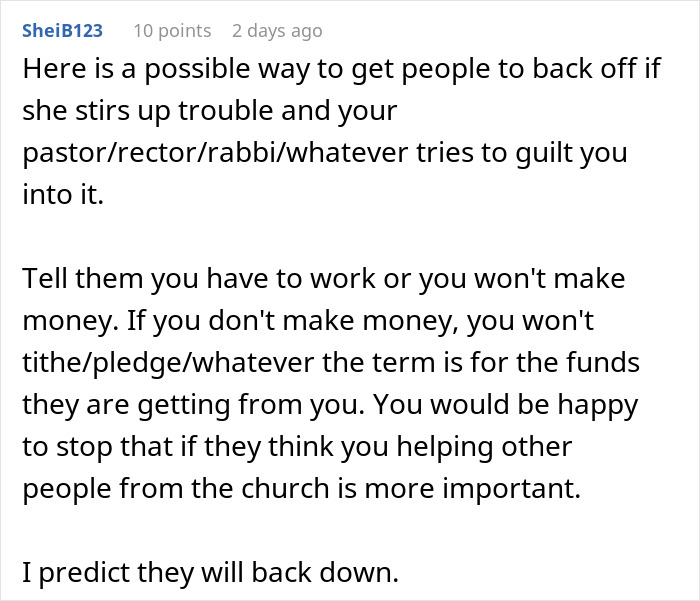






Others shared similar stories

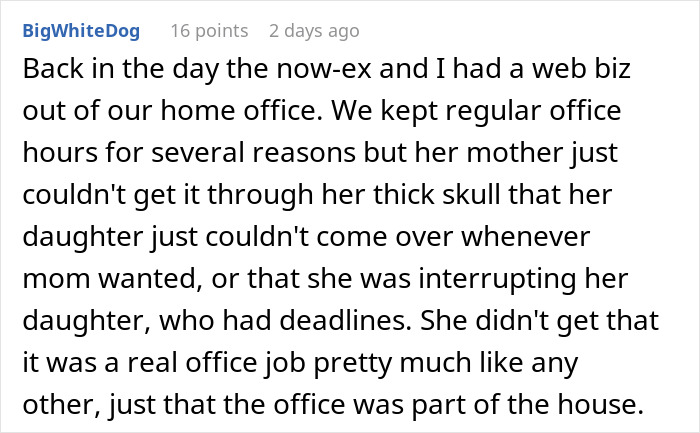
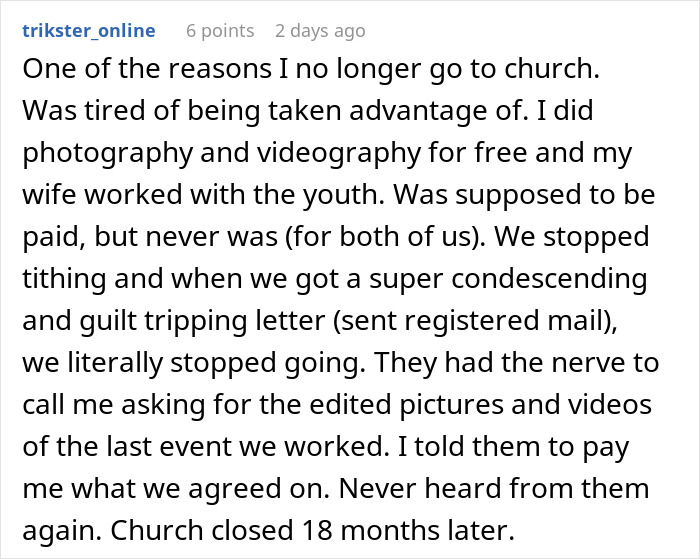
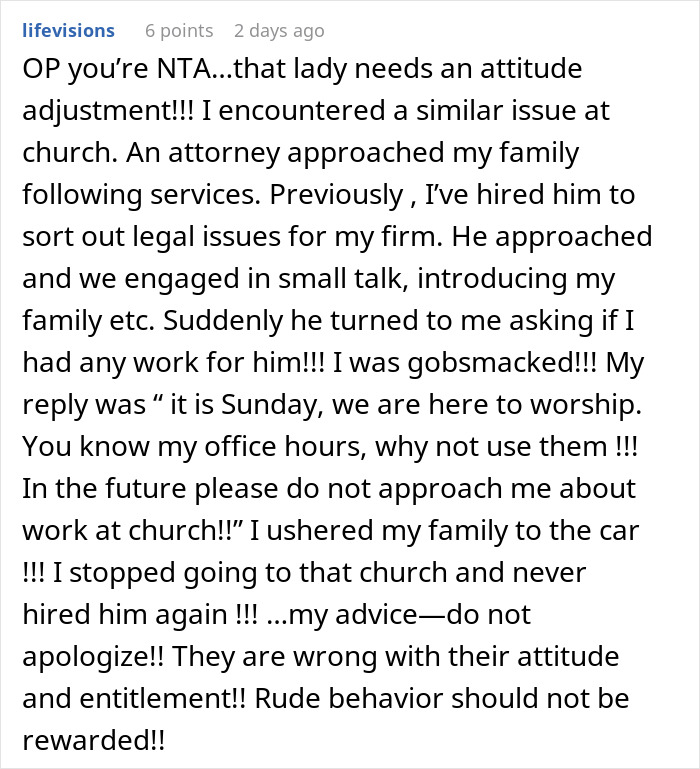


from Bored Panda https://ift.tt/aFunbh9
via IFTTT source site : boredpanda